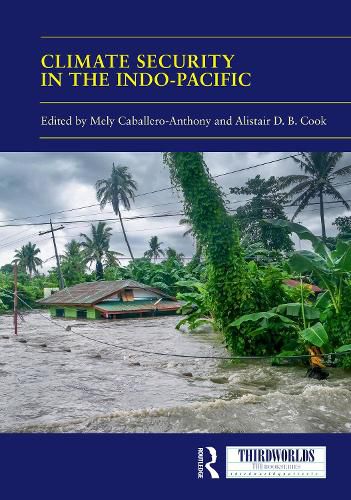Readings Newsletter
Become a Readings Member to make your shopping experience even easier.
Sign in or sign up for free!
You’re not far away from qualifying for FREE standard shipping within Australia
You’ve qualified for FREE standard shipping within Australia
The cart is loading…






This book explores the intersection of climate change and security in the Indo-Pacific, from the South China Sea disputes to national and regional security practices in India, Japan and Southeast Asia, highlighting the vulnerability of countries facing extreme weather, sea-level rise, and geopolitical tensions.
The Indo-Pacific is the world's most exposed region to natural hazards, and climate change is highly likely to impact the frequency and severity of these events, threatening people's lives and livelihoods. Over the last two decades, research into the security implications of climate change has gained considerable interest among scholars and policy analysts across the world. Evidence-based research has shown how the impact of climate change such as sea-level rise, long droughts and extreme weather events have led to loss of livelihoods, economic downturns, forced migration and health threats from emerging infectious diseases. The effects of climate change in turn have led to greater potential for conflicts breaking out in societies most affected by climate change. As countries in the region face both climate challenges and strategic competition, their experiences offer valuable insights into how we can tackle this issue.
This book is essential reading for students, scholars and policymakers engaged in the fields of climate change, security studies, and international relations.
The chapters in this book were originally published as a special issue of Third World Quarterly.
$9.00 standard shipping within Australia
FREE standard shipping within Australia for orders over $100.00
Express & International shipping calculated at checkout
Stock availability can be subject to change without notice. We recommend calling the shop or contacting our online team to check availability of low stock items. Please see our Shopping Online page for more details.
This book explores the intersection of climate change and security in the Indo-Pacific, from the South China Sea disputes to national and regional security practices in India, Japan and Southeast Asia, highlighting the vulnerability of countries facing extreme weather, sea-level rise, and geopolitical tensions.
The Indo-Pacific is the world's most exposed region to natural hazards, and climate change is highly likely to impact the frequency and severity of these events, threatening people's lives and livelihoods. Over the last two decades, research into the security implications of climate change has gained considerable interest among scholars and policy analysts across the world. Evidence-based research has shown how the impact of climate change such as sea-level rise, long droughts and extreme weather events have led to loss of livelihoods, economic downturns, forced migration and health threats from emerging infectious diseases. The effects of climate change in turn have led to greater potential for conflicts breaking out in societies most affected by climate change. As countries in the region face both climate challenges and strategic competition, their experiences offer valuable insights into how we can tackle this issue.
This book is essential reading for students, scholars and policymakers engaged in the fields of climate change, security studies, and international relations.
The chapters in this book were originally published as a special issue of Third World Quarterly.